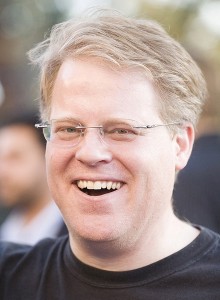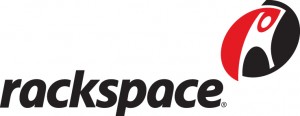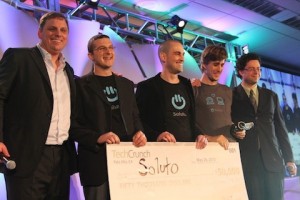By: Hillel Fuld
As you might have noticed, I have been trying to land interviews with some of the main people that inspired me over the years, mainly in the tech space. Robert Scoble has to be number one on that list. The guy is a legend in the tech world yet he does not let it go to his head at all and spends time talking to people like me on Twitter and even IM. He is one of the nicest people I have met in the industry, and that in and of itself is amazing given everything he has accomplished. Yes, most people of his stature will not give the little person the time of day.
Just a short introduction, Robert is a former Microsoft employee who now works for Rackspace, a leading server and hosting company. Robert travels around the world discovering new technologies and interviewing the entrepreneurs behind them. His HD video interviews are world famous and I have been lucky enough to be present and watch a few of them in person, the man is an artist.
When I asked Robert how I could possibly describe him since he has to many titles, he answered me in the simplest of ways “I search the world for world-changing technology for Rackspace.” Why is that note worthy? Well because Scoble has been known to have serious influence over companies like Microsoft, Google, and even Apple.
To name one example, Robert interviewed two young startup founders who no one had heard of called Siri. He was so impressed with their technology that he predicted on the spot that they would be bought out soon. Guess what? soon after, Siri was bought out by Apple for a whopping $200 million. Now, no one knows what role Scoble’s prediction played in that acquisition, but suffice to say, when Robert makes a statement like he did with Siri, people listen.
He did the same thing with Soluto and said they would win TechCrunch Disrupt, which almost got them banned, at least according to Arrington’s tweet, and sure enough, they took home the gold medal. He has been going on and on about Flipboard before it was even available and again, the product launch was absolutely huge with Flipboard’s servers crashing repeatedly due to high demand.
OK, enough about Scoble, chances are you know who he is and what he is capable of, now take a look at his thoughts on the hottest tech topics. Just keep in mind that this was an interview I was trying to get for close to a year and the man is busy, so we did this over IM. You will notice a few instances of back and forth dialogue in the below interview, but that is just the nature of an IM interview.
The following are Scoble’s thoughts on Apple, Google, Facebook, tablets, location based-services and more. Enjoy!
1. When did you first start blogging and why?
December 15, 2000. I started because I was helping Dan Shafer run the CNET Builder.com Live conference, which was for web developers, and two of our speakers wanted to do a session on blogging (Dave Winer and Dori Smith). They didn’t convince me blogging was important enough for a conference session, but they did get me to start blogging.
2. Given your last answer, looks like blogging was not how you started out. Please tell me a little bit about how Scoble became Scoble. How did you meet Dan Shafer for example?
Well, short answer is 1980s were spent helping manage camera stores. Then went back to school, first to try to get a computer science degree, later switched to journalism (after the 1989 earthquake hit while I was in physics class).
In the 1990s worked for Fawcette Technical Publications, which published BasicPro magazine. That was before Microsoft shipped Visual Basic, which after it shipped took off in a huge way. We went from eight employees to hundreds. I helped with online communities, editing, and with conference planning. That’s what led to working with Dan Shafer.
During the 1990s I left FTP to run marketing for Winnov, a video capture card startup, then came back after a couple of years to work more on conferences. All that time I was online. Microsoft gave me an MVP award after noticing I’d written more than 10,000 newsgroup posts in a month. Whew!
But none of that work gave me the opportunities that blogging did. I soon left Fawcette (almost got fired for covering Microsoft .NET before anyone else, which pissed off people at Microsoft). Went to work for Dave Winer, helped launch Radio Userland, which was influential software on the world of blogging.
I ran the books at UserLand too, in addition to evangelizing its use, and blogging and doing a lot of online work. I soon laid myself off because we were out of cash, then found a job at NEC.
At NEC I was in sales support, but I got there a few months before they shipped their tablet PC (which was a LOT like the iPad is today, except it had crappy battery life and cost $2,000). Anyway, a guy named Vic Gundotra called and bought the first one. He was an exec at Microsoft I’d learn later (now he is an exec at Google). Soon he was reading my blog and eventually bought a few hundred for Bill Gates to hand out to CEOs at his CEO Summit.
After a few months he told me I was the only OEM factory rep that was working online (he first found me in a newsgroup where I was talking about the NEC Tablet, later he read my blog). Asked me if I would be interested in coming up to Microsoft to work in evangelism. The rest is history.
3: Since clearly you have been around the tech block and accomplished a lot, what is something you aspire to? What is on your bucket list?
I’ve always been interested in technology. My dad was an engineer at Lockheed and he bought an Apple II in 1977. Growing up in Silicon Valley it just was part of the culture here. Friends of mine were into Ham Radio. Other friends were building BBS’s, or programming games. I remember building a radio, among other electronics projects, and stringing my own antenna along the roof of our house.
Anyway, if you left me at a party I would quickly find the other geeks in the room and start talking to them about what they were working on.
That’s what gives me joy, and is something that continues to today. I live for finding world-changing technology and learning how it works.
The things I hope to accomplish are to find the next great technology and tell all my friends about it. That said, I do have some professional aspirations that involve mostly finding ways to continue doing that.
4: OK, moving on to geek talk. Where is Google going to be ten years from now? Still a search company. a social network, a mobile company or all of the above?
Google hasn’t been a search company for more than five years. It’s an intention-satisfaction company. IE, an advertising company.
So, it will be all the above, because we use all the above to communicate to the world our intent.
Search is just the easiest way to study intention.
5. OK, now Apple. Will it dominate the mobile space? Any huge iPhone-like surprises you anticipate in the next five years?
Anyone who says that they can predict five years into the future is either Douglas Engelbart or is lying. Since I’m not Doug, I’ll stay out of that game for the most part.
That said, Apple has the best supply chain and best management in the business right now. Will they be important in five years? Companies like that don’t stop being important that quickly. Heck, look at how long Microsoft has been on top, mostly based on its momentum that it gained from the 1990s.
Well Robert, you DID predict Siri and Soluto, did you not?
Yes, but Siri and Soluto weren’t five years away when I predicted them. It’s easy to predict the future after you’ve already seen it!
That said, let’s talk about what’s in the labs: voice control that actually does a lot more than just get recognized and search. Siri is one to watch there. But we’re already seeing that trend, so, again, it’s easy to predict that future.
6. Awesome, moving along the tech spectrum, will Facebook be the next MySpace and become “uncool” soon?
That would be an easy prediction to make, but I don’t think this will go away as easily as it looks like MySpace is. For one, Facebook has management that’s focused wholly on Facebook. MySpace’s management wasn’t keeping its eye on the ball.
That said, when Facebook does start getting boring or getting passed, we’ll have years of warning .
7. So what do you say to all the privacy freaks who do not believe in Facebook, Twitter, and Foursquare due to privacy issues?
I think they are nuts.
The world has demonstrated over and over to me that we will trade our privacy when we get something in return.
It used to be taboo to tell people about your weird disease. Now people do that every day online. People share their credit card info. That used to be weird too. And they check in their location.
That still seems weird, but is getting less weird every day. OUR BEHAVIOR AND MORES CHANGE and that’s what the privacy nuts don’t get.
8. OK, now to your baby, the iPad. Tell me about the tablet market, the Samsung Tab, and your thoughts on the future of this space.
I’ve been excited by Tablets for a very long time. But why didn’t Microsoft succeed? Because they didn’t build every piece of their OS for use with touch. Apple did. The iPad is an awesome device that doesn’t have a lot of features. No camera. No multitasking. No printing. No Flash. But that’s why it feels good, no matter what you do with it.
Other companies just don’t get that you must make your experience feel really great all the way deep.
My Samsung Galaxy S phone, for instance, came with more than 50 icons. My iPhone only had, what, 12?
Samsung and other manufacturers don’t take a customer-centric approach. They load their stuff up with crapware to make a few extra pennies. Apple doesn’t do that
So, I don’t see many ways that other manufacturers will be successful here. There are a few, but I haven’t seen them yet.
People aren’t buying the iPad because it’s a slate. If they cared about that, they would have bought previous Tablets that had Windows on them. They care about having a great experience and right now Apple is the only one I can look at that has the ability to get consumers that hot and bothered by a new form factor.
What do you think?
You’re asking me? I agree 100% but Android is catching up with Froyo, no?
A bit, but I still like Apple’s OS better. Google is the one company I see who can mount a serious challenge. HP is the spoiler with Palm’s OS.
So you think Palm is dead in the water?
No.
HP has been working on a tablet for three years.
They have the market power to make a lot happen. They bought Palm to be free of Microsoft (and/or to give them negotiating power with Microsoft).
9. Very interesting! So how do you think Android will do in the long run? Will fragmentation and piracy continue to be an issue?
Yes, fragmentation is already a big issue. I was at SmugMug today and they were complaining about all the testing they had to do with their new Android app just to make sure it worked OK on all the different phones.
But Android is more like Microsoft’s Windows. I think it could take a good chunk of market share. I think it won’t go to 90% like Windows did, because of the role of carriers and other factors that are in play, but developers don’t like the threat that Apple has over them. Look at the Camera+ app.
It’s gone from the app store and they are effectively out of business unless they find a way to convince Apple to put them back in.
10. Facebook Places and location, is it a trend or something that will stick around and become the future of tech?
Yes, but Facebook did a poor job on designing it so people actually find some value in using it. For instance, when I check in at Apple it treats my checkin the same as if I check in at my grocery store. That causes very spammy behavior on my wall, and, even worse, if I check other people in and push those updates onto their walls.
Location is important, though, and when designed into apps well brings a lot of great utility. But we’re at the very beginning of that industry, much more to come. Did you see the Vail app released today that automatically checks you in as you ski?
No, will look for it.
Just to clarify, you said yes, as in it is here to stay?
Yes, location is here to stay.
People who say it isn’t just aren’t facing facts and looking at what you can do with apps that share location.
I just want to thank Robert for this interview and all the help and support he has given me over the past year. He is a true role model both as a tech guru and just a human being.
You can watch Robert’s exclusive video with Mike McCue, the founder of Flipboard below. Speaking of Mike, I hope to be posting my interview with him in the coming days.



Excellent Article ! Full respect #
Wow. that’s some awesome content! The video is great. I like it.
Great interview! I liked the toughts about Google, location future and privacy.
Great interview, and a great honor for Soluto to be mentioned here 🙂